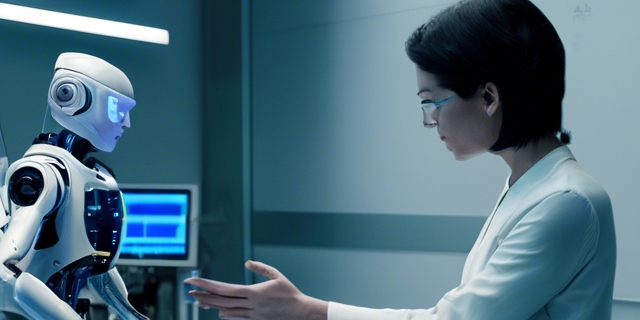Artificial Intelligence (AI) has been a topic of fascination and debate for decades. As AI technology continues to evolve, the concept of the Singularity has emerged as a fascinating and controversial idea. This article explores the concept of AI and the Singularity, examining its potential impact on society, economy, and ethics.
What is the Singularity?
The Singularity is a hypothetical event in which AI surpasses human intelligence, leading to exponential growth in technological progress. This event is characterized by the creation of superintelligent AI that can design and improve itself, leading to a rapid acceleration of technological progress. The term “Singularity” was coined by mathematician and computer scientist John von Neumann in the 1950s and popularized by science fiction author Vernor Vinge in the 1980s.
The Evolution of AI
AI has come a long way since its inception in the 1950s. Early AI research focused on rule-based systems, which relied on predefined rules and algorithms to solve problems. However, this approach was limited in its ability to handle complex and dynamic environments. In the 1980s, machine learning emerged as a new approach to AI, which enabled AI systems to learn from data and adapt to new situations. Today, AI has become a ubiquitous technology, powering everything from virtual assistants to self-driving cars.
- Rule-based systems: Early AI research focused on rule-based systems, which relied on predefined rules and algorithms to solve problems.
- Machine learning: Machine learning emerged as a new approach to AI in the 1980s, which enabled AI systems to learn from data and adapt to new situations.
- Deep learning: Deep learning is a subset of machine learning that uses artificial neural networks to model and solve complex problems.
The Potential Impact of the Singularity
The Singularity has the potential to transform society, the economy, and ethics in profound ways. Here are some of the potential impacts of the Singularity:
- Society: The Singularity could lead to a post-scarcity society, in which resources are abundant and poverty is eliminated. It could also lead to a radical transformation of the workforce, as many jobs become automated.
- Economy: The Singularity could lead to a massive expansion of the economy, as AI systems design and build new technologies at an unprecedented pace. However, it could also lead to increased inequality, as the owners of AI systems reap the benefits of this growth.
- Ethics: The Singularity raises important ethical questions about the role of AI in society. Should AI systems be granted rights and responsibilities? How should we ensure that AI systems are aligned with human values?
Conclusion
The Singularity is a fascinating and controversial concept that has the potential to transform society, the economy, and ethics in profound ways. While the Singularity is still a hypothetical event, AI technology is rapidly advancing, and it is important to consider the potential impact of this technology on our world. By understanding the potential impact of the Singularity, we can begin to prepare for this transformative event and ensure that it benefits all of humanity.

